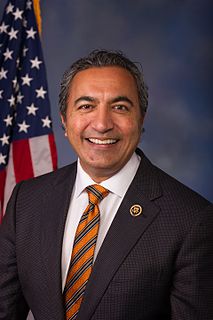A Quote by J. R. R. Tolkien
For so sworn good or evil an oath may not be broken and it shall pursue oathkeeper and oathbreaker to the world's end.
Related Quotes
We have sworn, and not lightly. This oath we will keep. We are threatened with many evils, and treason not least; but one thing is not said: that we shall suffer from cowardice, from cravens or the fear of cravens. Therefore I say that we will go on, and this doom I add: the deeds that we shall do shall be the matter of song until the last days of Arda.
Cosmic evolution may teach us how the good and evil tendencies of man may have come about; but, in itself, it is incompetent to furnish any better reason why what we call good is preferable to what we call evil than we had before. Some day, I doubt not, we shall arrive at an understanding of the evolution of the aesthetic faculty; but all the understanding in the world will neither increase nor diminish the force of the intuition that this is beautiful and that is ugly.
In this world, there is no absolute good, no absolute evil," the man said. "Good and evil are not fixed, stable entities, but are continually trading places. A good may be transformed into an evil in the next second. And vice versa. Such was the way of the world that Dostoevsky depicted in The Brothers Karamazov. The most important thing is to maintain the balance between the constantly moving good and evil. If you lean too much in either direction, it becomes difficult to maintain actual morals. Indeed, balance itself is the good.
We live in this irreparably broken world, and I don't wish to deny reality, but the amazing thing to me is not that we refuse to relinquish hope as a species. The amazing thing is that we're right to hold on to hope. The world may be broken, but hope is not crazy. ... Obviously not all stories end happily. We don't always have good fortune, but hope gives us, as a species and as individuals, what we otherwise wouldn't have: A chance.
Man doeth this and doeth that from the good or evil of his heart; but he knows not to what end his sense doth prompt him; for when he strikes he is blind to where the blow shall fall, nor can he count the airy threads that weave the web of circumstance. Good and evil, love and hate, night and day, sweet and bitter, man and woman, heaven above and the earth beneath--all those things are needful, one to the other, and who knows the end of each?
It is evil to justify killing (unborn babies) by the happy outcome of eternity for the one killed. This same justification could be used to justify killing one-year olds, or any heaven-bound believer for that matter. The Bible asks the question: "Shall we sin that grace may abound?" (Romans 6:1) And: "Shall we do evil that good may come?" (Romans 3:8). In both cases the answer is a resounding NO. It is presumption to step into God's place and try to make the assignments to heaven or to hell. Our duty is to obey God, not to play God.
ATHENA: There are two sides to this dispute. I've heard only one half the argument. (...) So you two parties, summon your witnesses, set out your proofs, with sworn evidence to back your stories. Once I've picked the finest men in Athens, I'll return. They'll rule fairly in this case, bound by a sworn oath to act with justice.
let it go -- the smashed word broken open vow or the oath cracked length wise -- let it go it was sworn to go let them go -- the truthful liars and the false fair friends and the boths and neithers -- you must let them go they were born to go let all go -- the big small middling tall bigger really the biggest and all things -- let all go dear so comes love




































